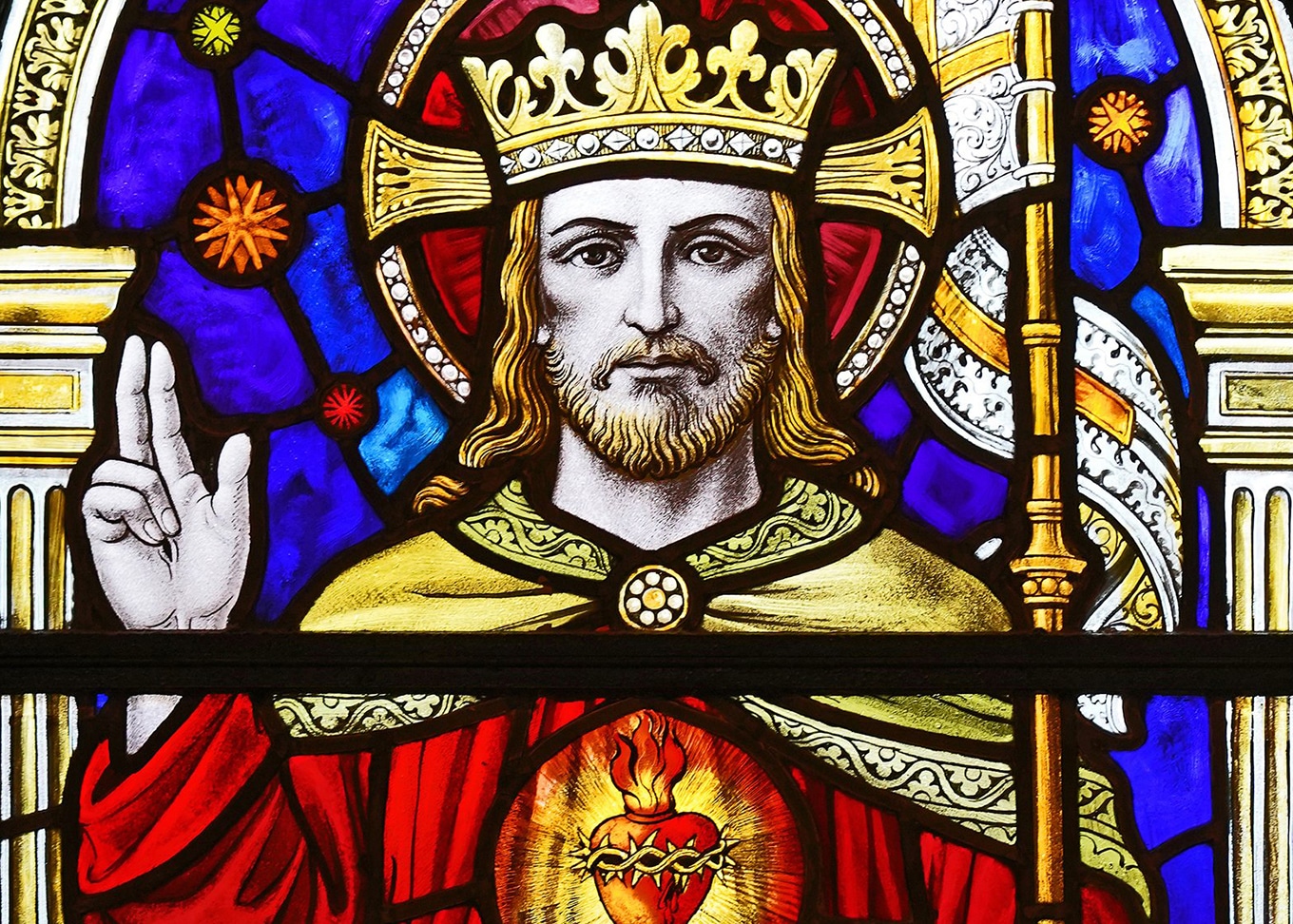This Sunday we celebrate the solemnity of Our Lord Jesus Christ, King of the Universe. From the beginning of the readings for the solemnity, Our Lord tells us what it means that he is “King of the Universe.” The Lord begins by speaking through Ezekiel, saying, “I myself will look after and tend my sheep … I myself will pasture my sheep … I myself will give them rest … The lost I will seek out, the strayed I will bring back, the injured I will bind up, the sick I will heal …”
Jesus is not a king like the kings of this world. He is king by virtue of his humility and love, out of which he seeks us to serve and heal us. But the world does not recognize such service is truly the stuff of royal kingship. Indeed, the world grew jealous of the Lord, and enthroned Christ upon a cross.
Even there, though, Christ revealed his reign over the universe. As Pope Benedict XVI, once wrote: “On the Cross, at that moment, he is shown to be King; and how is he King? By suffering with us and for us, by loving to the end, and in this way governing and creating truth, love and justice” (General Audience, Aug. 22, 2012).
| November 26 – The Solemnity of Our Lord Jesus Christ, King of the Universe |
|---|
|
Ez 34:11-12, 15-17 Ps 23:1-2, 2-3, 5-6 1 Cor 15:20-26, 28 Mt 25:31-46 |
It is in accord with this kind of royal kingship — which rules by serving, because the rule is one of love — that Christ asks us to become part of his Kingdom. We, too, are to tend the sheep, pasture them and give them rest. Christ tells us as much in Matthew’s Gospel this Sunday:
“Come, you who are blessed by my Father. Inherit the kingdom prepared for you from the foundation of the world. For I was hungry and you gave me food, I was thirsty and you gave me drink, a stranger and you welcomed me, naked and you clothed me, ill and you cared for me, in prison and you visited me.”
Works of mercy
In these verses, Christ delineates the actualization of his kingdom: feeding the hungry, giving drink to the thirsty, welcoming the stranger, caring for the sick, clothing the naked, and visiting the imprisoned. In short: the works of mercy. We carry these works out for Christ in his Body, for all those to whom he has given himself. “Amen,” Christ says to us, “Whatever you did for one of the least brothers of mine, you did for me.”
Indeed, Christ says the works of mercy actualize the kingdom of God. Perhaps, though, we have forgotten the true wonder that this is. We often talk about the works of mercy, and about love for our neighbor as distinctively Christian, as activities that characterize a Christian life. And so it is worth remembering that this communion in love has a deeply mystical character.
In his encyclical, Deus Caritas Est, Pope Benedict XVI reminded us that, “Love of God and love of neighbor are now truly united,” in God’s kingdom. “God incarnate draws us all to himself” (No. 14). Christ’s greatest work of mercy — the Incarnation — that by which he himself tended his sheep, is now carried out in us. Joined to Christ, we incarnate God’s love for the “least of our brothers.”
But, the mystical element is even greater than this. Thus, I leave you to meditate on the words of Pope Benedict XVI, again taken from Deus Caritas Est, where he describes the mystical character of the kingdom constituted by the King of the Universe: “I cannot possess Christ just for myself; I can belong to him only in union with all those who have become, or who will become, his own. Communion draws me out of myself towards him, and thus also towards unity with all Christians. We become ‘one body,’ completely joined in a single existence. Love of God and love of neighbor are now truly united” (No. 14).





